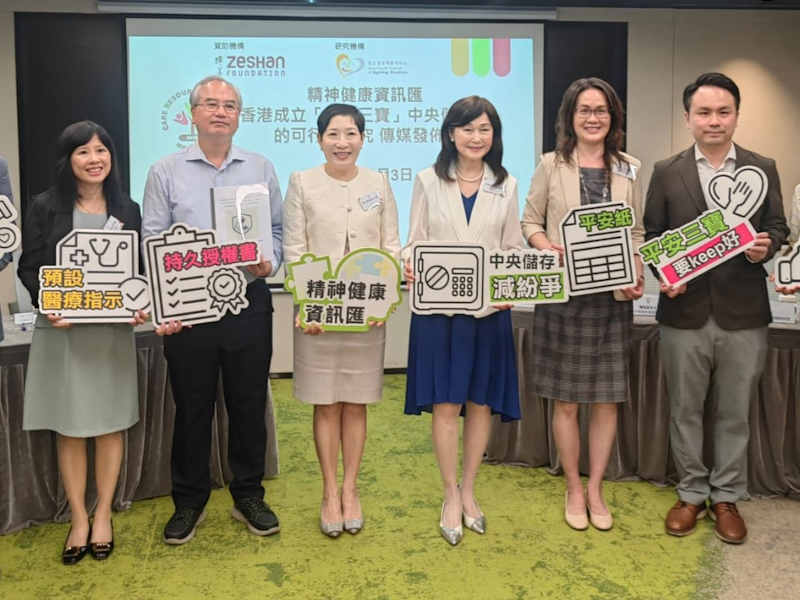
In 2024-2025, ZeShan Foundation funded MIPCRC to conduct a 9-month study titled Feasibility of Setting Up a Central Depository for Storing ‘Three Instruments of Peace’ in Hong Kong.

In 2024-2025, ZeShan Foundation funded MIPCRC to conduct a 9-month study titled Feasibility of Setting Up a Central Depository for Storing ‘Three Instruments of Peace’ in Hong Kong.
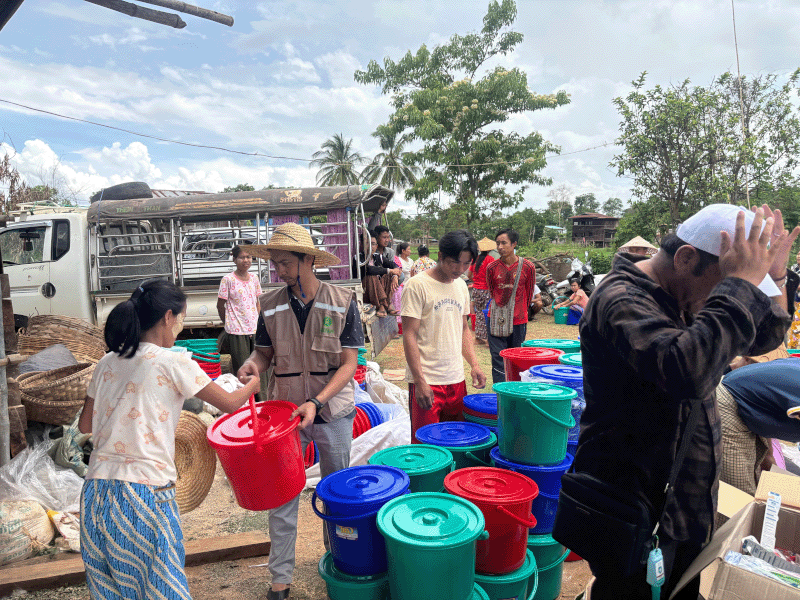
On 28 March 2025, a catastrophic 7.7-magnitude earthquake struck central Myanmar, claiming at least 3,800 lives, injuring over 5,100, and leaving 116 missing. The disaster impacted 17 million people across 58 townships, with 9 million enduring the quake’s most violent tremors. Homes, schools, and vital infrastructure were reduced to rubble, and vast agricultural lands were damaged deepening food insecurity and economic hardship. Families are struggling to survive in makeshift shelters, facing acute shortages of clean water, food, and medical care.
Oxfam’s rapid assessment with local partners revealed dire gaps in the emergency response. With the monsoon season looming, access to safe drinking water and sanitation is critical to prevent outbreaks of cholera, malaria, and dengue. Families lack proper shelters and basic household essentials, while rising food insecurity threatens their survival. Mental health and protection services particularly for women and children are vital to provide stability during the crisis.
With the support from ZeShan Foundation, Oxfam and its partners are delivering life-saving aid to approximately 8,385 earthquake survivors in Southern Shan State. Our work is transforming despair into hope through:
After the earthquake struck, 20 villages around Inle Lake began rebuilding with unyielding community spirit. Through assessments and consultations, local families shaped bamboo shelter designs that meet their needs. Skilled carpenters and bamboo experts collaborated to craft durable shelters validated by engineering institutes for lasting safety. With materials delivered swiftly and prototypes refining the process, construction now surges forward, supported by Oxfam’s engineering expertise, a powerful display of resilience, offering protection and hope to communities in crisis.
Oxfam Hong Kong
On 28 March 2025, a catastrophic 7.7-magnitude earthquake struck central Myanmar, claiming at least 3,800 lives, injuring over 5,100, and leaving 116 missing. The disaster impacted 17 million people across 58 townships, with 9 million enduring the quake’s most violent tremors. Homes, schools, and vital infrastructure were reduced to rubble, and vast agricultural lands were damaged deepening food insecurity and economic hardship. Families are struggling to survive in makeshift shelters, facing acute shortages of clean water, food, and medical care.
Oxfam’s rapid assessment with local partners revealed dire gaps in the emergency response. With the monsoon season looming, access to safe drinking water and sanitation is critical to prevent outbreaks of cholera, malaria, and dengue. Families lack proper shelters and basic household essentials, while rising food insecurity threatens their survival. Mental health and protection services particularly for women and children are vital to provide stability during the crisis.
With the support from ZeShan Foundation, Oxfam and its partners are delivering life-saving aid to approximately 8,385 earthquake survivors in Southern Shan State. Our work is transforming despair into hope through:
After the earthquake struck, 20 villages around Inle Lake began rebuilding with unyielding community spirit. Through assessments and consultations, local families shaped bamboo shelter designs that meet their needs. Skilled carpenters and bamboo experts collaborated to craft durable shelters validated by engineering institutes for lasting safety. With materials delivered swiftly and prototypes refining the process, construction now surges forward, supported by Oxfam’s engineering expertise, a powerful display of resilience, offering protection and hope to communities in crisis.
Oxfam Hong Kong
Rising from Earthquake Ruins
Related Link
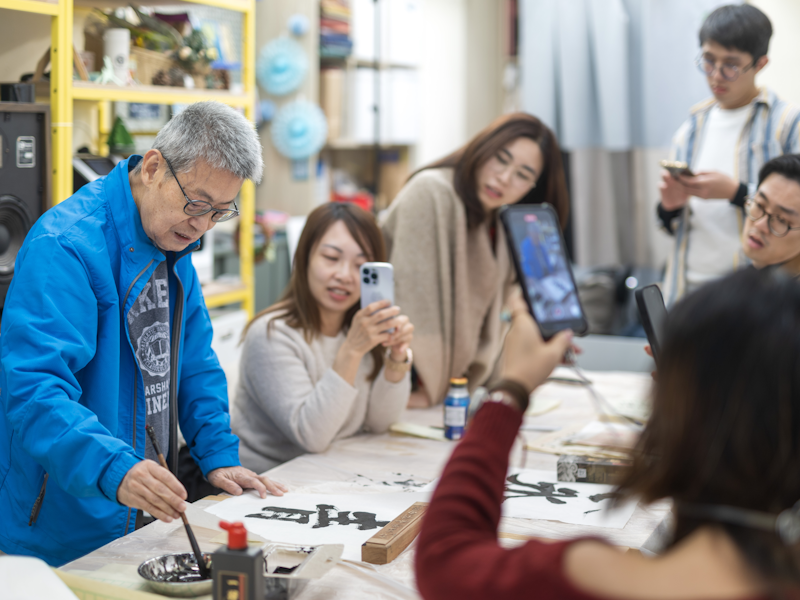
In Sheung Wan, Project House @1QRW (“Project House”) is not merely a gathering place but a catalyst for fostering community partnerships, transformation and support network. Co-funded by ZeShan Foundation and Chow Tai Fok Charity Foundation and co-operated by Caritas and One Bite Social, this initiative is aimed at building a vibrant hub of community activities and mutual support to combat loneliness among some residents in the district. Located at 1 Queen’s Road West, as a historical shop formerly reputed for selling Cantonese siumei, Project House leverages the strengths of traditional social work and creative, community-centric approaches to address urban social challenges.
One Bite Social is a community-empowering and life-giving arm created by One Bite Design Studio. As a key partner in Project House, One Bite Social brings our unique ethos of creative changemaking to the table. It champions a community-driven and human-centric approach to urban space design and utilization. With a pool of creative talents at One Bite Design, One Bite Social has been gearing social-private collaborations and pioneering urban innovations with social impact. Creating or curating delightful daily surprises for the community is our team’s humble vision. We take on a multifaceted approach, focusing on Experimentation, Creative Partnership, and Co-Learning.
Cross-Sectoral Collaboration
In Project House, our collaboration showcases how aligning different sectors can enhance the effectiveness of social initiatives. One Bite Social and Caritas bring together disparate expertise, blending innovative creative practices with established methods of social work. This partnership not only broadens the scope of what can be achieved but also deepens the impact of each organization’s efforts. For instance, we co-created many district-based activities, such as Sheung Wan Sewing Squad and White Space, to meet community needs through creative and inclusive approaches. These activities provide skills training, foster community bonds, and enhance local resilience. While the Caritas team is contributing with their expertise in building bonding with kaifong (residents), these activities do not stop at social work level. One Bite Social is trying hard to turn the outcomes of these activities into more self-sustainable models that can export kaifong’s capability to meet other neighbors’ needs. The rich iterative process at Project House is uncommon yet powerful in the local social work scene. And this can only be achieved through the creative partnerships between One Bite Social and Caritas.
Growing Together
This collaboration also represents a mutual learning journey for both organizations involved. It requires aligning languages, adapting working habits, and fine-tuning mindsets. By integrating the best traits from each team, the project not only progresses towards its objectives but also exemplifies effective cross-sectoral collaboration. With a shared vision, the teams are better equipped to carefully address and evolve through the nuances and challenges that arise.
Broader Implications for Social Change
The success of Project House raises important considerations for the broader social service sector. It demonstrates the potential of creative collaborations in generating more nuanced and effective solutions to social problems. More importantly, it highlights the need for flexibility in partnerships and the benefits of integrating diverse perspectives into social service design and delivery.
In conclusion, the work being done at Project House and the broader initiatives led by One Bite Social represent a forward-thinking approach to social change. By continuing to embrace these creative partnerships and learning from each venture, we not only respond to but also shape the evolving landscape of our communities, making every small change count towards a larger, collective impact.
Sarah Mui
In Sheung Wan, Project House @1QRW (“Project House”) is not merely a gathering place but a catalyst for fostering community partnerships, transformation and support network. Co-funded by ZeShan Foundation and Chow Tai Fok Charity Foundation and co-operated by Caritas and One Bite Social, this initiative is aimed at building a vibrant hub of community activities and mutual support to combat loneliness among some residents in the district. Located at 1 Queen’s Road West, as a historical shop formerly reputed for selling Cantonese siumei, Project House leverages the strengths of traditional social work and creative, community-centric approaches to address urban social challenges.
Changemaker from Other Side of Spectrum
One Bite Social is a community-empowering and life-giving arm created by One Bite Design Studio. As a key partner in Project House, One Bite Social brings our unique ethos of creative changemaking to the table. It champions a community-driven and human-centric approach to urban space design and utilization. With a pool of creative talents at One Bite Design, One Bite Social has been gearing social-private collaborations and pioneering urban innovations with social impact. Creating or curating delightful daily surprises for the community is our team’s humble vision. We take on a multifaceted approach, focusing on Experimentation, Creative Partnership, and Co-Learning.
Cross-Sectoral Collaboration
In Project House, our collaboration showcases how aligning different sectors can enhance the effectiveness of social initiatives. One Bite Social and Caritas bring together disparate expertise, blending innovative creative practices with established methods of social work. This partnership not only broadens the scope of what can be achieved but also deepens the impact of each organization’s efforts. For instance, we co-created many district-based activities, such as Sheung Wan Sewing Squad and White Space, to meet community needs through creative and inclusive approaches. These activities provide skills training, foster community bonds, and enhance local resilience. While the Caritas team is contributing with their expertise in building bonding with kaifong (residents), these activities do not stop at social work level. One Bite Social is trying hard to turn the outcomes of these activities into more self-sustainable models that can export kaifong’s capability to meet other neighbors’ needs. The rich iterative process at Project House is uncommon yet powerful in the local social work scene. And this can only be achieved through the creative partnerships between One Bite Social and Caritas.
Growing Together
This collaboration also represents a mutual learning journey for both organizations involved. It requires aligning languages, adapting working habits, and fine-tuning mindsets. By integrating the best traits from each team, the project not only progresses towards its objectives but also exemplifies effective cross-sectoral collaboration. With a shared vision, the teams are better equipped to carefully address and evolve through the nuances and challenges that arise.
Broader Implications for Social Change
The success of Project House raises important considerations for the broader social service sector. It demonstrates the potential of creative collaborations in generating more nuanced and effective solutions to social problems. More importantly, it highlights the need for flexibility in partnerships and the benefits of integrating diverse perspectives into social service design and delivery.
Every Small Change Counts
In conclusion, the work being done at Project House and the broader initiatives led by One Bite Social represent a forward-thinking approach to social change. By continuing to embrace these creative partnerships and learning from each venture, we not only respond to but also shape the evolving landscape of our communities, making every small change count towards a larger, collective impact.
Sarah Mui
Catalyzing Community Transformation
Co-founder
One Bite Social
Co-founder
One Bite SocialRelated Link
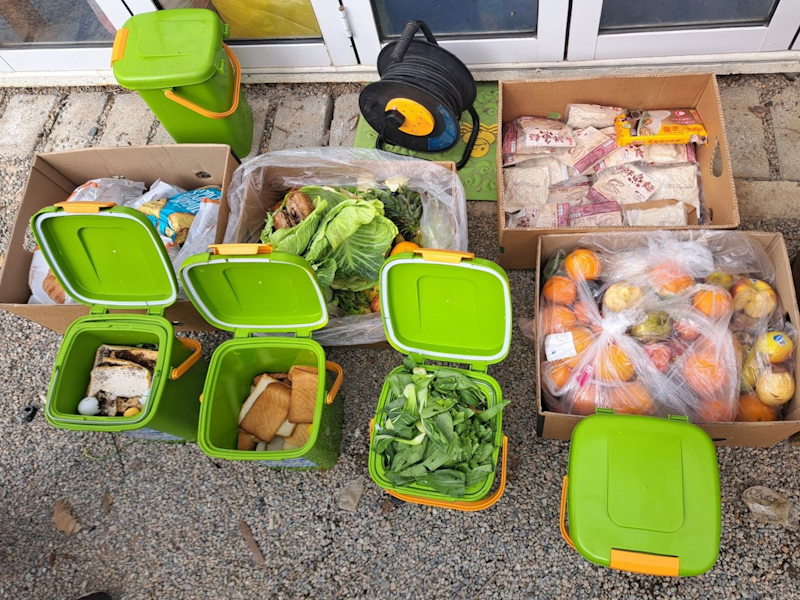
While pursuing economic development, Hong Kong, like many developed regions, faces severe environmental and social challenges. Among these, the issue of food waste is particularly prominent. All citizens and shops in Hong Kong generate up to 3,190 tons of food waste on average every day (2023 data), an amount equivalent to the weight of 246 double-decker buses. This continuously brings immense pressure to landfills and the local environment. When food waste decomposes in landfills, it releases potent greenhouse gases like methane, severely exacerbating climate change. Additionally, the collection and transportation of food waste also creates a significant carbon footprint. To address the environmental pressure and climate impact brought by this massive amount of food waste, we urgently need innovative and sustainable solutions to effectively utilize food waste and reduce waste at the source. To build Hong Kong into a sustainable and livable city, we require not only long-term and effective policies to address these pressing environmental issues, but also major value and behavioral changes in society. In order to address these urgent challenges, the Bio-Loop Nature-based Food Waste Recycling Pilot Scheme (“this pilot project”) is set to launch in April 2025. This forward-thinking initiative, led by A Plastic Ocean Foundation with funding from ZeShan Foundation, brings together Gaw Capital People’s Place and Lingnan University’s Science Unit. Through this pilot project, pre-consumer food waste are collected from malls in North and Tuen Mun districts. Black soldier fly (BSF) technology and IoT-optimized aquaponics are used to transform food waste into edible fish and vegetables, the harvests of which will be donated to underprivileged communities through local charities. This sustainable solution reduces landfill pressure and carbon emissions while supporting a circular economy. To engage the public and promote sustainable practices, it offers free guided tours of its waste processing and aquaponics facilities for schools and the food and beverage industry stakeholders.
This pilot project was developed and designed by A Plastic Ocean Foundation, integrating nature-based solutions with the principles of sustainability and circular economy. By combining BSF technology and IoT-optimized aquaponics systems, this project transforms pre-consumer food waste from local restaurants into valuable products such as edible fish and vegetables. In addition to nature-based solutions for food waste recycling, this pilot project incorporates a community-based sustainable waste management approach. Following the principle of “local production and processing,” the pre-consumer food waste from restaurants will be transported to IoT-enabled BSF facilities in each district accordingly. It reduces reliance on centralized waste facilities, thereby lowering the risks of waste leakage, minimizing carbon emissions during transportation, and easing the pressure on landfills. The 2-year Pilot began in April 2025. During Phase One, pre-consumer food waste will be collected from restaurants located at People’s Place’s Wah Ming, Wah Sum, and Yung Shing Shopping Centres in the North District, and H.A.N.D.S Shopping Centre in Tuen Mun. We will then transport the waste to IoT-enabled BSF facilities in each district. The IoT technology boosts efficiency, monitoring and adjusting conditions like temperature to optimize larvae feeding. The black soldier fly will efficiently convert organic substances from food scraps into larval biomass rich in protein and lipids. The resulting larval biomass can be processed into a protein-rich feed ingredient suitable for aquaponic systems. In aquaponics, these nutrients are subsequently transferred through the food web: from the feed to the fish, and from the fish waste to the plants and facilitating nutrient cycling. In Phase Two, this pilot project aims to process at least six tons of community pre-consumption food waste and produce at least one ton of aquaponics products, which will be donated to underprivileged communities through local charities. By completing this cycle, the Pilot turns waste into benefiting the community.
Community Engagement and Public Education
To raise awareness, we will hold educational booths and exhibitions at H.A.N.D.S Shopping Centre in Tuen Mun during summer 2025. Local schools, non-profit organizations and food and beverage industry stakeholders are also invited to participate in free guided tours of BSF facilities at Lingnan University and aquaponics systems to learn about sustainable waste management and circular economy practices. We envision the Bio-Loop system being promoted in the 2 pilot districts, and to be replicated as a demonstration case in other communities and potentially setting a stage for policy discussion. We hope to collaborate with more like-minded partners to explore opportunities and possibilities for project expansion, thereby increasing the impact of Bio-Loop system. We are striving to bring about structural changes and make innovative strides in environmental sustainability and resource management.
Willy Kwong
While pursuing economic development, Hong Kong, like many developed regions, faces severe environmental and social challenges. Among these, the issue of food waste is particularly prominent. All citizens and shops in Hong Kong generate up to 3,190 tons of food waste on average every day (2023 data), an amount equivalent to the weight of 246 double-decker buses. This continuously brings immense pressure to landfills and the local environment. When food waste decomposes in landfills, it releases potent greenhouse gases like methane, severely exacerbating climate change. Additionally, the collection and transportation of food waste also creates a significant carbon footprint. To address the environmental pressure and climate impact brought by this massive amount of food waste, we urgently need innovative and sustainable solutions to effectively utilize food waste and reduce waste at the source. To build Hong Kong into a sustainable and livable city, we require not only long-term and effective policies to address these pressing environmental issues, but also major value and behavioral changes in society. In order to address these urgent challenges, the Bio-Loop Nature-based Food Waste Recycling Pilot Scheme (“this pilot project”) is set to launch in April 2025. This forward-thinking initiative, led by A Plastic Ocean Foundation with funding from ZeShan Foundation, brings together Gaw Capital People’s Place and Lingnan University’s Science Unit. Through this pilot project, pre-consumer food waste are collected from malls in North and Tuen Mun districts. Black soldier fly (BSF) technology and IoT-optimized aquaponics are used to transform food waste into edible fish and vegetables, the harvests of which will be donated to underprivileged communities through local charities. This sustainable solution reduces landfill pressure and carbon emissions while supporting a circular economy. To engage the public and promote sustainable practices, it offers free guided tours of its waste processing and aquaponics facilities for schools and the food and beverage industry stakeholders.
Bio-Loop Pilot Details
This pilot project was developed and designed by A Plastic Ocean Foundation, integrating nature-based solutions with the principles of sustainability and circular economy. By combining BSF technology and IoT-optimized aquaponics systems, this project transforms pre-consumer food waste from local restaurants into valuable products such as edible fish and vegetables. In addition to nature-based solutions for food waste recycling, this pilot project incorporates a community-based sustainable waste management approach. Following the principle of “local production and processing,” the pre-consumer food waste from restaurants will be transported to IoT-enabled BSF facilities in each district accordingly. It reduces reliance on centralized waste facilities, thereby lowering the risks of waste leakage, minimizing carbon emissions during transportation, and easing the pressure on landfills. The 2-year Pilot began in April 2025. During Phase One, pre-consumer food waste will be collected from restaurants located at People’s Place’s Wah Ming, Wah Sum, and Yung Shing Shopping Centres in the North District, and H.A.N.D.S Shopping Centre in Tuen Mun. We will then transport the waste to IoT-enabled BSF facilities in each district. The IoT technology boosts efficiency, monitoring and adjusting conditions like temperature to optimize larvae feeding. The black soldier fly will efficiently convert organic substances from food scraps into larval biomass rich in protein and lipids. The resulting larval biomass can be processed into a protein-rich feed ingredient suitable for aquaponic systems. In aquaponics, these nutrients are subsequently transferred through the food web: from the feed to the fish, and from the fish waste to the plants and facilitating nutrient cycling. In Phase Two, this pilot project aims to process at least six tons of community pre-consumption food waste and produce at least one ton of aquaponics products, which will be donated to underprivileged communities through local charities. By completing this cycle, the Pilot turns waste into benefiting the community.
Community Engagement and Public Education
To raise awareness, we will hold educational booths and exhibitions at H.A.N.D.S Shopping Centre in Tuen Mun during summer 2025. Local schools, non-profit organizations and food and beverage industry stakeholders are also invited to participate in free guided tours of BSF facilities at Lingnan University and aquaponics systems to learn about sustainable waste management and circular economy practices. We envision the Bio-Loop system being promoted in the 2 pilot districts, and to be replicated as a demonstration case in other communities and potentially setting a stage for policy discussion. We hope to collaborate with more like-minded partners to explore opportunities and possibilities for project expansion, thereby increasing the impact of Bio-Loop system. We are striving to bring about structural changes and make innovative strides in environmental sustainability and resource management.
Willy Kwong
From Kitchen Scraps to Community Good
CEO
A Plastic Ocean Foundation
CEO
A Plastic Ocean FoundationRelated Links
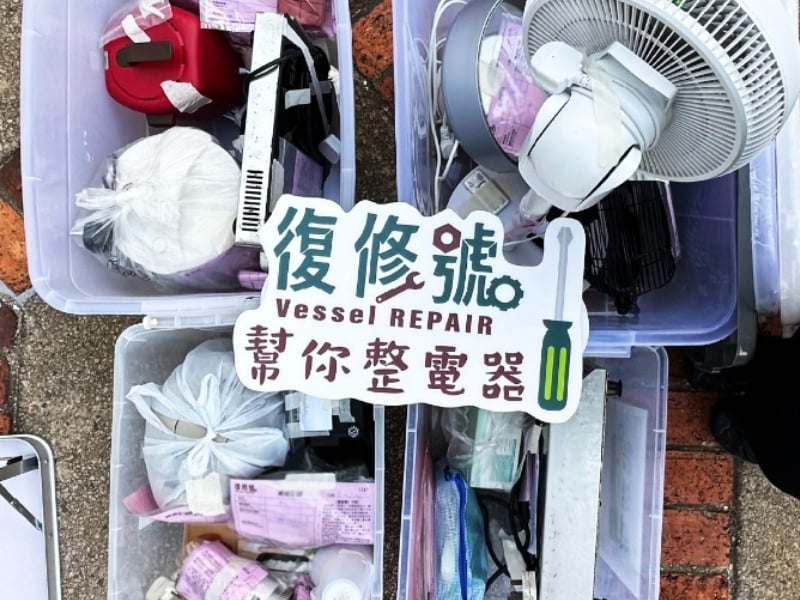
Waste of Electrical & Electronic Equipment (WEEE), containing toxic and chemical components, is among the world’s fastest-growing and most complex types of solid waste. Its disposal and improper handling pose significant risks to the environment. The rapid increase of WEEE is, according to the United Nation’s The Global E-waste Monitor 2020 report, fueled by high consumption rates, short product life-cycles, and inadequate repair options. In Hong Kong, 21.6 kg of WEEE is produced per person per year on average, which is three times that of other Asian cities. Globally, Hong Kong is among the top 15 regions in WEEE generation. Although there are now regulations on recycling certain types of WEEE, many small home appliances, such as fans, hairdryers, induction cookers, and microwaves, are often discarded when old or broken. While the GREEN@COMMUNITY scheme of the Environmental Protection Department does recycle small home appliances, participation is not mandatory. Besides, this scheme only promotes recycling, but not repair.
The waste and handling of electrical resources is receiving increasing attention from different sectors, with Repair & Reuse playing a key role among the various waste prevention solutions adopted. In November 2024, a seminar titled “The Era of Repair” was organised by Vessel REPAIR, an initiative under the environmental charity Community Leap, with funding from ZeShan Foundation. Various repair-related stakeholders shared their thoughts on WEEE, repair, and the circular economy. The results and analysis of the “Survey on Public Practices for Buying, Using, and Disposing of Home Appliances” were also released. The survey found that Hong Kong families threw away some 1.5 million small home appliances on average every year, 790,000 of which were directly discarded; fewer than 30% of respondents said that they would arrange recycling. It revealed that Hong Kong people, when handling small home appliances, faced many pain points and a lack of repair support. Most respondents agreed that local policies and producers did not provide adequate support for recycling small home appliances and reducing WEEE, and that setting up repair stations and organising repair training could cut down WEEE. Vessel REPAIR believes that there is a need to introduce more circular economy practices into Hong Kong, such as Repair, Reuse, and the Right to Repair. It suggests that Repair should be included in the agenda and discussion on reducing WEEE. Education and promotion are also important for raising public awareness and encouraging “Repair instead of Purchase” to cut down WEEE. In 2018, Community Leap’s Vessel REPAIR introduced the idea of “Repair Café” from Amsterdam, the Dutch capital, into Hong Kong, setting up the city’s first Community Repair Station. With a bottom-up approach, it aims to encourage citizens to take the initiative in tackling WEEE and to promote a culture of “Repair instead of Purchase”. The Community Repair Station brings together Community Repair Volunteers who are older adults passionate about the environment. By offering repair services of small home appliances to local residents, the initiative extends the life-span of resources and alleviate the problem of WEEE. By redistributing refurbished appliances, Community Leap can match the resources to help those in need and helps build a green community of mutual aid as a long-term outcome. The repair services have been very popular since its launch. In 2024, Vessel REPAIR received funding from ZeShan Foundation to launch the “Electrical Appliances Second Life Workshop” programme, setting up a second repair station in Kowloon. With a pay-as-you-wish model, it aims to help local residents resolve issues with appliances, reduce the waste of electrical resources, and gradually change the consumer culture of discarding the old and buying the new. Besides extending the existing repair services, the programme also includes organizing professional certificate training on repairing small home appliances in order to enable more silver-age community members becoming Community Repair Master to continue putting their talents into contributing to the community and the environment. ‘Big Fai’, who has volunteered at Vessel REPAIR for three years, said that what he enjoyed the most at the repair station was the warm sense of community. He also said that successfully fixing appliances and saving them from the landfill not only gave him enormous satisfaction, but also helped community members keep alive the associated memories and sentiments. These were the reasons that kept him going. Seen in this light, what is being repaired is not simply resources and the environment, but also, importantly, values and beliefs. Community Leap
Waste of Electrical & Electronic Equipment (WEEE), containing toxic and chemical components, is among the world’s fastest-growing and most complex types of solid waste. Its disposal and improper handling pose significant risks to the environment. The rapid increase of WEEE is, according to the United Nation’s The Global E-waste Monitor 2020 report, fueled by high consumption rates, short product life-cycles, and inadequate repair options. In Hong Kong, 21.6 kg of WEEE is produced per person per year on average, which is three times that of other Asian cities. Globally, Hong Kong is among the top 15 regions in WEEE generation. Although there are now regulations on recycling certain types of WEEE, many small home appliances, such as fans, hairdryers, induction cookers, and microwaves, are often discarded when old or broken. While the GREEN@COMMUNITY scheme of the Environmental Protection Department does recycle small home appliances, participation is not mandatory. Besides, this scheme only promotes recycling, but not repair.
The waste and handling of electrical resources is receiving increasing attention from different sectors, with Repair & Reuse playing a key role among the various waste prevention solutions adopted. In November 2024, a seminar titled “The Era of Repair” was organised by Vessel REPAIR, an initiative under the environmental charity Community Leap, with funding from ZeShan Foundation. Various repair-related stakeholders shared their thoughts on WEEE, repair, and the circular economy. The results and analysis of the “Survey on Public Practices for Buying, Using, and Disposing of Home Appliances” were also released. The survey found that Hong Kong families threw away some 1.5 million small home appliances on average every year, 790,000 of which were directly discarded; fewer than 30% of respondents said that they would arrange recycling. It revealed that Hong Kong people, when handling small home appliances, faced many pain points and a lack of repair support. Most respondents agreed that local policies and producers did not provide adequate support for recycling small home appliances and reducing WEEE, and that setting up repair stations and organising repair training could cut down WEEE. Vessel REPAIR believes that there is a need to introduce more circular economy practices into Hong Kong, such as Repair, Reuse, and the Right to Repair. It suggests that Repair should be included in the agenda and discussion on reducing WEEE. Education and promotion are also important for raising public awareness and encouraging “Repair instead of Purchase” to cut down WEEE. In 2018, Community Leap’s Vessel REPAIR introduced the idea of “Repair Café” from Amsterdam, the Dutch capital, into Hong Kong, setting up the city’s first Community Repair Station. With a bottom-up approach, it aims to encourage citizens to take the initiative in tackling WEEE and to promote a culture of “Repair instead of Purchase”. The Community Repair Station brings together Community Repair Volunteers who are older adults passionate about the environment. By offering repair services of small home appliances to local residents, the initiative extends the life-span of resources and alleviate the problem of WEEE. By redistributing refurbished appliances, Community Leap can match the resources to help those in need and helps build a green community of mutual aid as a long-term outcome. The repair services have been very popular since its launch. In 2024, Vessel REPAIR received funding from ZeShan Foundation to launch the “Electrical Appliances Second Life Workshop” programme, setting up a second repair station in Kowloon. With a pay-as-you-wish model, it aims to help local residents resolve issues with appliances, reduce the waste of electrical resources, and gradually change the consumer culture of discarding the old and buying the new. Besides extending the existing repair services, the programme also includes organizing professional certificate training on repairing small home appliances in order to enable more silver-age community members becoming Community Repair Master to continue putting their talents into contributing to the community and the environment. ‘Big Fai’, who has volunteered at Vessel REPAIR for three years, said that what he enjoyed the most at the repair station was the warm sense of community. He also said that successfully fixing appliances and saving them from the landfill not only gave him enormous satisfaction, but also helped community members keep alive the associated memories and sentiments. These were the reasons that kept him going. Seen in this light, what is being repaired is not simply resources and the environment, but also, importantly, values and beliefs. Community Leap
Smart Ideas to Give Electrical Appliances a Second Life
Executive Director
Allen Yuen
Executive Director
Allen Yuen
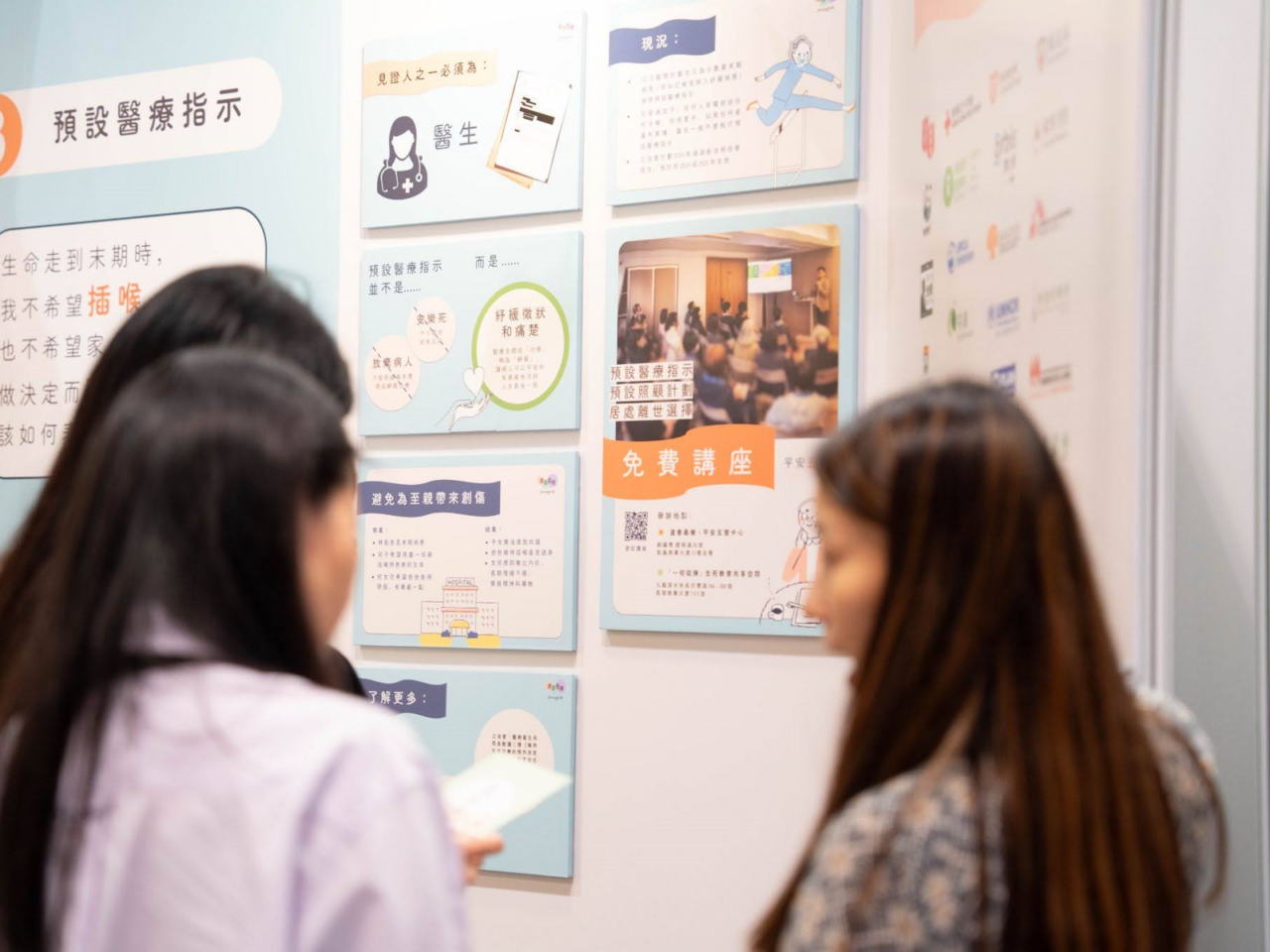
‘May the Five Blessings descend upon your door’ is an auspicious saying commonly exchanged on festive occasions. In fact, ‘Five Blessings’ comes from Confucian classic The Book of Documents and refers to longevity, wealth, health, virtue, and peaceful passing, in its chapter on Great Plan. In today’s Hong Kong, how can we ensure that our loved ones and ourselves enjoy all Five Blessings in our finite lives? ‘Five Blessings’ is Hong Kong’s first professional life-death planning service. It was launched by OneTake ted jointly with two other local social enterprises, ‘ForeverGift.hk’ and ‘Minimal Funeral Limited’. Let it Go.’ Our team of lawyers, doctors, and funeral planners offer a one-stop solution to arranging one’s will, enduring power of attorney, and advanced directive in relation to medical treatment, besides funeral planning and capturing life stories. We organise talks for social service organisations and the public, so as to help people of different socio-economic backgrounds make preparations for themselves and their loved ones with ease. To ensure that underprivileged communities can access such services, we established Hong Kong’s first Five Blessings Center, with funding from ZeShan Foundation, other family foundations, and the Social Innovation and Entrepreneurship Development Fund (SIE Fund), as well as support from the Hong Kong Council of Social Service’s Impact Incubator. Our Inner Peace Program aims to popularise life-death planning through public education and professional consultation, as well as offering ‘Five Blessings’ services free-of-charge to older adults and chronically or terminally ill patients referred by social service organisations. Five Blessings Centre, One Take Limited
‘May the Five Blessings descend upon your door’ is an auspicious saying commonly exchanged on festive occasions. In fact, ‘Five Blessings’ comes from Confucian classic The Book of Documents and refers to longevity, wealth, health, virtue, and peaceful passing, in its chapter on Great Plan. In today’s Hong Kong, how can we ensure that our loved ones and ourselves enjoy all Five Blessings in our finite lives? ‘Five Blessings’ is Hong Kong’s first professional life-death planning service. It was launched by OneTake ted jointly with two other local social enterprises, ‘ForeverGift.hk’ and ‘Minimal Funeral Limited’. Let it Go.’ Our team of lawyers, doctors, and funeral planners offer a one-stop solution to arranging one’s will, enduring power of attorney, and advanced directive in relation to medical treatment, besides funeral planning and capturing life stories. We organise talks for social service organisations and the public, so as to help people of different socio-economic backgrounds make preparations for themselves and their loved ones with ease. To ensure that underprivileged communities can access such services, we established Hong Kong’s first Five Blessings Center, with funding from ZeShan Foundation, other family foundations, and the Social Innovation and Entrepreneurship Development Fund (SIE Fund), as well as support from the Hong Kong Council of Social Service’s Impact Incubator. Our Inner Peace Program aims to popularise life-death planning through public education and professional consultation, as well as offering ‘Five Blessings’ services free-of-charge to older adults and chronically or terminally ill patients referred by social service organisations. Five Blessings Centre, One Take Limite
Inner Peace
Related Links
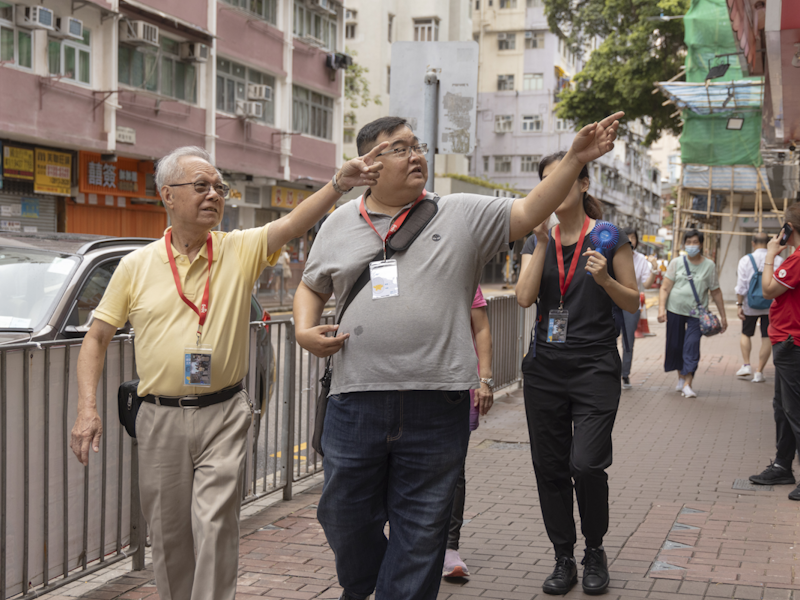
The World Health Organization has declared loneliness to be a “pressing health threat” worldwide, with health risks comparable to smoking up to 15 cigarettes a day. Many studies have confirmed that loneliness not only increases mortality risks, but also worsens health problems such as hypertension, depression, and anxiety. According to the “Elderly Mental Wellness Telescreening Survey in Hong Kong 2022” conducted by the University of Hong Kong, a third of older adults in Hong Kong suffered from depression, anxiety, or loneliness. Loneliness is clearly spreading in our community and is a cause of mental health issues. Yet, little is known about the practice of Social Prescribing in Hong Kong. Since early 2024, MaD has been receiving funding from ZeShan Foundation and the Phillip K. H. Wong Foundation to launch the Social Prescribing Lab. This program tests how to alleviate loneliness in older adults through exploring community resources and linking them to individuals, going beyond conventional medically-driven frameworks. The program piloted in Tai Kok Tsui and Sai Ying Pun, where Link Workers of different backgrounds and professions were recruited and trained. They were paired with older adults to establish relationships of trust and to co-create Social Prescribing solutions that were individualized and user-centric. The Link Workers then accompanied the older adults to take part in the prescribed activities. MaD’s localized model aims to go deep into communities and explore untapped resources for primary healthcare, as well as mobilizing manpower reserves (such as ‘mid-old’ retirees and university students) to relieve pressures on health and social care. Through the process of co-creation and experimentation with older adults, it also aims to build ‘meaningful connections’ that foster social capital, so as to support older adults in overcoming social isolation and improving their quality of life. Ultimately, we hope that this exploration of non-medical community resources could offer alternatives that complement the existing system, thus contributing to the development of community-based primary healthcare for all. MaD Social Lab team,
The World Health Organization has declared loneliness to be a “pressing health threat” worldwide, with health risks comparable to smoking up to 15 cigarettes a day. Many studies have confirmed that loneliness not only increases mortality risks, but also worsens health problems such as hypertension, depression, and anxiety. According to the “Elderly Mental Wellness Telescreening Survey in Hong Kong 2022” conducted by the University of Hong Kong, a third of older adults in Hong Kong suffered from depression, anxiety, or loneliness. Loneliness is clearly spreading in our community and is a cause of mental health issues. Yet, little is known about the practice of Social Prescribing in Hong Kong. Since early 2024, MaD has been receiving funding from ZeShan Foundation and the Phillip K. H. Wong Foundation to launch the Social Prescribing Lab. This program tests how to alleviate loneliness in older adults through exploring community resources and linking them to individuals, going beyond conventional medically-driven frameworks. The program piloted in Tai Kok Tsui and Sai Ying Pun, where Link Workers of different backgrounds and professions were recruited and trained. They were paired with older adults to establish relationships of trust and to co-create Social Prescribing solutions that were individualized and user-centric. The Link Workers then accompanied the older adults to take part in the prescribed activities. MaD’s localized model aims to go deep into communities and explore untapped resources for primary healthcare, as well as mobilizing manpower reserves (such as ‘mid-old’ retirees and university students) to relieve pressures on health and social care. Through the process of co-creation and experimentation with older adults, it also aims to build ‘meaningful connections’ that foster social capital, so as to support older adults in overcoming social isolation and improving their quality of life. Ultimately, we hope that this exploration of non-medical community resources could offer alternatives that complement the existing system, thus contributing to the development of community-based primary healthcare for all. MaD Social Lab team,
Overcoming Loneliness
Make A Difference Institute
Make A Difference InstituteRelated Links
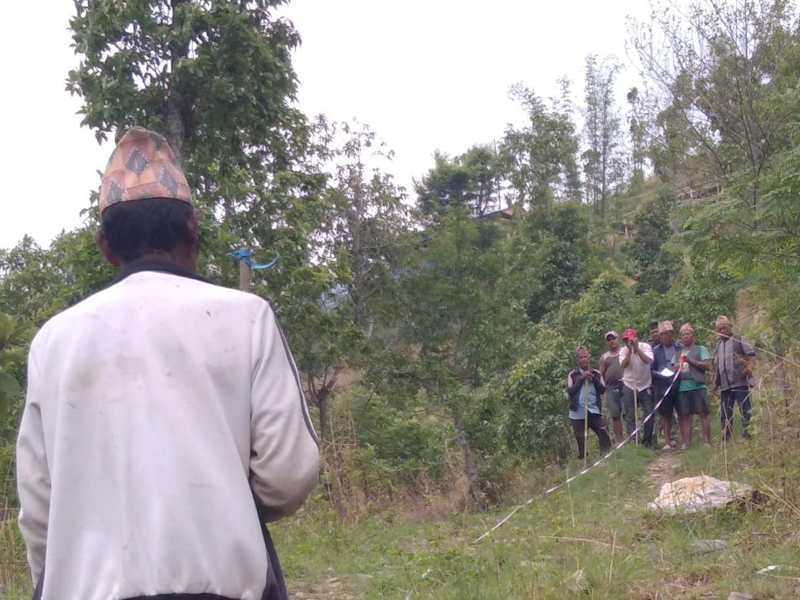
In the remote villages of Okhaldhunga, Nepal, accessing clean water has become a daily struggle. Due to climate change and unplanned development, dwindling water sources have left many households without reliable access to safe drinking water. Women and children often have to walk every day to fetch water, placing a heavy burden on their health and livelihoods. But the Hong Kong Red Cross, together with the International Federation of Red Cross and Red Crescent Societies and the Nepal Red Cross Society, is taking a community-driven and participatory approach to address this urgent crisis through the Nepal Sustainable and Inclusive Water, Sanitation and Hygiene (WASH) project. At the heart of this initiative is a deep commitment to engaging local communities as active partners in the design and implementation of sustainable water solutions. With the support of ZeShan Foundation, the project team is working closely with communities to understand their unique needs and priorities, leveraging their valuable local knowledge and perspectives. Beyond just building new infrastructure, the 15-month disaster mitigation project will empower communities to take ownership of their water resources. This includes providing training and support for the construction and maintenance of community-managed water supply schemes, as well as promoting behavioural changes around hygiene and sanitation practices. This project will also incorporate nature-based solutions where feasible, recognizing that restoring and protecting local ecosystems can play a crucial role in enhancing water security. However, the primary focus will be on amplifying the voices and agency of the communities themselves. Ultimately, it aims to ensure long-term access to safe drinking water, sanitation and hygiene for more than 700 villagers in three communities when it is completed in July 2025. More importantly, it seeks to cultivate a sense of self-reliance and resilience within these communities – equipping them with the knowledge, skills, and collective power to secure their water future for generations to come. Join us in empowering communities to build a water-secure future in Nepal. Hong Kong Red Cross
In the remote villages of Okhaldhunga, Nepal, accessing clean water has become a daily struggle. Due to climate change and unplanned development, dwindling water sources have left many households without reliable access to safe drinking water. Women and children often have to walk every day to fetch water, placing a heavy burden on their health and livelihoods. But the Hong Kong Red Cross, together with the International Federation of Red Cross and Red Crescent Societies and the Nepal Red Cross Society, is taking a community-driven and participatory approach to address this urgent crisis through the Nepal Sustainable and Inclusive Water, Sanitation and Hygiene (WASH) project. At the heart of this initiative is a deep commitment to engaging local communities as active partners in the design and implementation of sustainable water solutions. With the support of ZeShan Foundation, the project team is working closely with communities to understand their unique needs and priorities, leveraging their valuable local knowledge and perspectives. Beyond just building new infrastructure, the 15-month disaster mitigation project will empower communities to take ownership of their water resources. This includes providing training and support for the construction and maintenance of community-managed water supply schemes, as well as promoting behavioural changes around hygiene and sanitation practices. This project will also incorporate nature-based solutions where feasible, recognizing that restoring and protecting local ecosystems can play a crucial role in enhancing water security. However, the primary focus will be on amplifying the voices and agency of the communities themselves. Ultimately, it aims to ensure long-term access to safe drinking water, sanitation and hygiene for more than 700 villagers in three communities when it is completed in July 2025. More importantly, it seeks to cultivate a sense of self-reliance and resilience within these communities – equipping them with the knowledge, skills, and collective power to secure their water future for generations to come. Join us in empowering communities to build a water-secure future in Nepal. Hong Kong Red Cross
Water-Secure Future in Nepal
Related Links
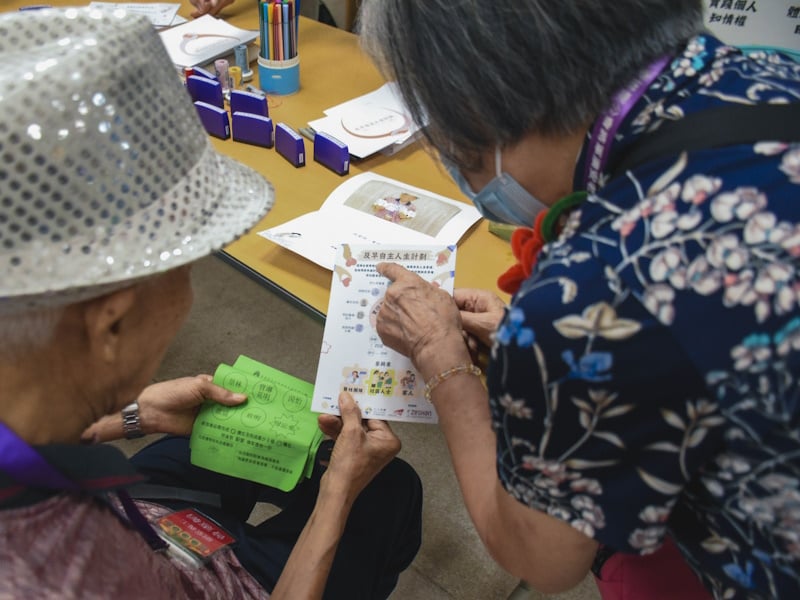
The escalating conflicts in Myanmar have led to widespread displacement, exacerbating the humanitarian crisis among vulnerable groups, especially children. Numerous families have been forced into precarious living conditions in camps or host communities where basic necessities and essential safeguards are scarce. This displacement has severely disrupted children's education, exposing them to various forms of exploitation and increasing their vulnerabilities to violence. Indiscriminate shelling, airstrikes, and the presence of unexploded ordnances have not only caused physical harm but also instilled a pervasive sense of insecurity and fear, hampering daily activities and economic recovery.
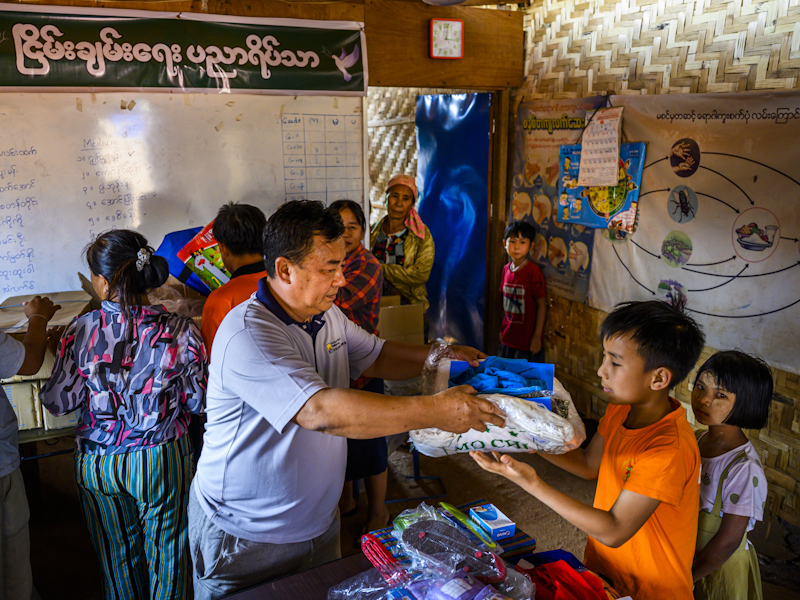
The escalating conflicts in Myanmar have led to widespread displacement, exacerbating the humanitarian crisis among vulnerable groups, especially children. Numerous families have been forced into precarious living conditions in camps or host communities where basic necessities and essential safeguards are scarce. This displacement has severely disrupted children's education, exposing them to various forms of exploitation and increasing their vulnerabilities to violence. Indiscriminate shelling, airstrikes, and the presence of unexploded ordnances have not only caused physical harm but also instilled a pervasive sense of insecurity and fear, hampering daily activities and economic recovery.